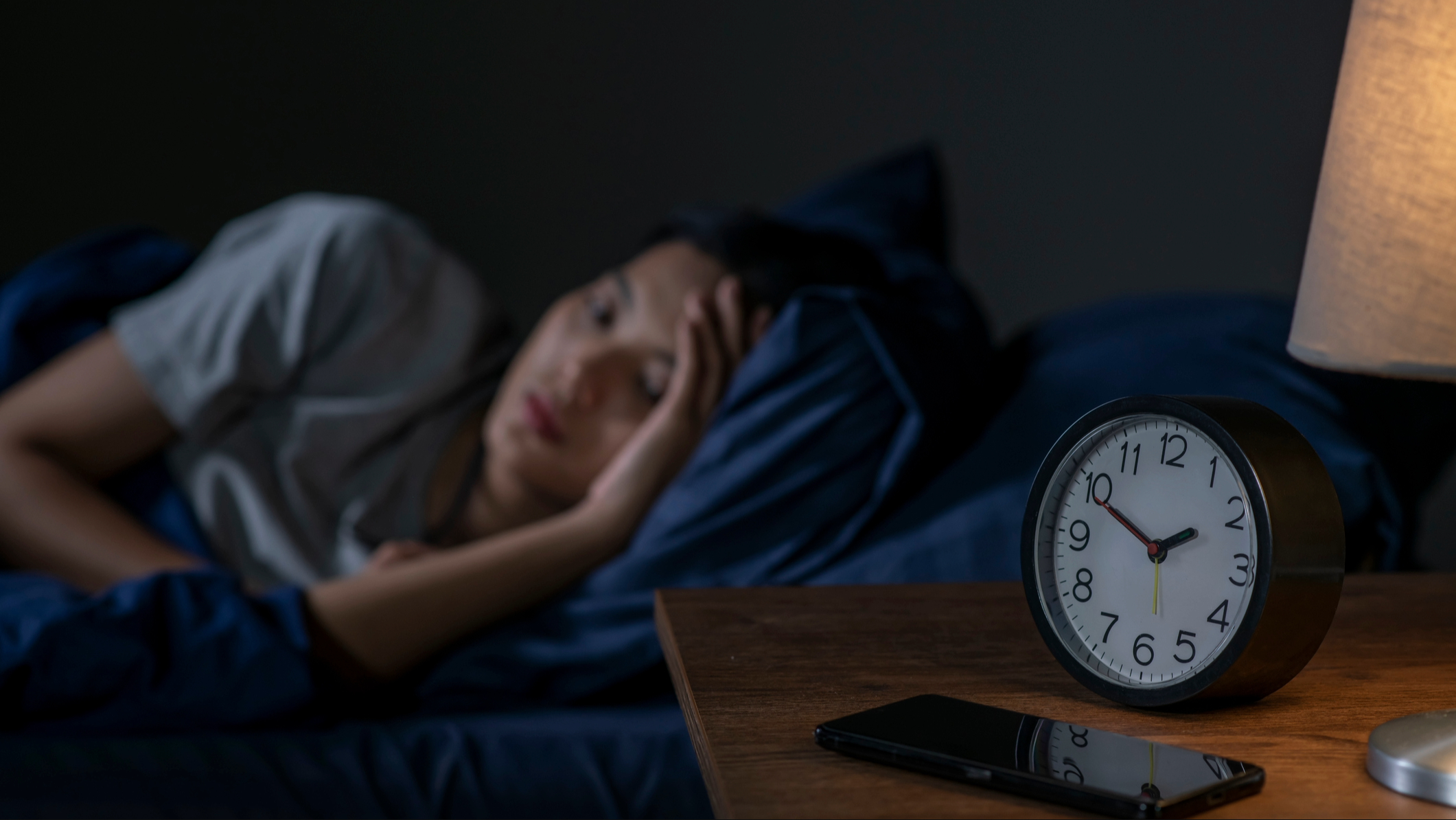Need to wake up earlier? 7 expert tips for rescheduling your sleep schedule fast
Here’s how to reset your sleep schedule with success

With summer coming to a close, there are a few necessities many of us need to get on top of. Whether you’re gearing up to work after vacation or your children are heading back to the classroom, chances are you’ll benefit from resetting your sleep schedule.
There are many ways you can do this, including choosing from this year’s best mattresses so you can find the right bed for you and get high quality sleep.
However, the task can be easier said than done for adults and children alike — but it’s surely not impossible if you heed expert-vetted tips and tricks.
We asked behavioral sleep specialist Carleara Weiss, PhD, MS, RN, for all you need to know about resetting your sleep schedule with success.
Why is a healthy sleep schedule important?
First things first: A healthy sleep schedule — i.e., one that’s consistent and includes habits for sleep hygiene — is crucial for a good night’s rest, no matter your age.
High-quality sleep will be harder to achieve if your circadian rhythm (aka biological clock) is off balance due to factors including but not limited to fluctuating sleep schedules.
Good sleep is linked to everything from immune function and energy to muscle repair and mood. A solid pre-ZZZ routine and a regular sleep schedule are important puzzle pieces that can help you achieve enough high-quality rest.
Get instant access to breaking news, the hottest reviews, great deals and helpful tips.
“Resetting the sleep schedule is a fundamental step towards wellness, particularly if you experience social jet lag, fatigue, and difficulty concentrating due to sleepiness,” says Dr. Weiss.
What can throw your sleep schedule off?
Any number of things can disrupt your sleep schedule.
Some of the biggest culprits include but aren’t limited to:
- Traveling across time zones
- Social jet lag (i.e., sleeping in on weekends and holidays)
- Adjusting your sleep schedule for summer break or over vacation
- Sleep disorders including insomnia
- Stress and anxiety
- Bouts of illness
- Physical aches and pains

How to reset your sleep schedule fast — 7 expert tips
It’s not only on Mondays, after vacation, and at the end of summer break that you’ll need to reset your sleep schedule.
Per Dr. Weiss, you can also benefit from resetting your sleep schedule if you regularly:
- Wake up feeling tired
- Deal with brain fog
- Have difficulty concentrating
- Experience daytime fatigue and/or irritability
With these points in mind, heed the sleep expert’s top tips to reset your sleep schedule fast.
1. Wake up at the same time every day
As with most healthy habits, consistency is crucial for success… and sleep is no different. As tempting as it may be to sleep in late when you have the chance, you’ll likely end up doing your sleep quality (and overall well-being) a disservice.
“This might be the hardest step, especially if you binge-watch TV or stay up late for another reason,” Dr. Weiss shares. However, it’s also amongst the most important steps in resetting your sleep schedule and achieving quality rest night after night.
“The biological clock in the brain needs regularity to establish a healthy circadian rhythm,” she continues. “Waking up at the same time every day is a critical component of circadian regularity.”
2. Create a regular morning routine
Bedtime routines often get all the spotlight, yet wake-up routines are also essential for sleep hygiene.
“Our behavior after waking up helps the biological clock’s regularity,” says Dr. Weiss, which in turns supports daytime energy levels and sleepiness come nighttime.
Her go-to hacks worth adopting in your own wake-up routine include:
- Getting exposure to bright light upon waking
- Moving your body via walking, exercising, or stretching
- Eating a full breakfast (and not coffee alone)
“A healthy morning routine will help your whole wellness — not just sleep,” she adds.

3. Eat a full breakfast
Breakfast is often considered to be the most important meal of the day. According to Dr. Weiss, the rings especially true when it comes to resetting your sleep schedule.
“Skipping breakfast delays the circadian rhythm and impairs metabolism and immune function,” she explains.
As such, she advises eating a more balanced morning meal if you aren’t already, and avoiding any temptation to subsist on coffee alone.
4. Keep consistent meal times throughout the day
Circadian rhythm, metabolism, and nutrition are closely connected. The timing of your meals also has a bearing on biological clock.
Research suggests that this aspect may be especially relevant for individuals with circadian rhythm disruptions (including travelers across time zones and shift workers) and disorders.
When you’re on the quest to reset your sleep schedule, adjusting your meals and meal times can lend a helping hand. “Be sure to eat breakfast, lunch, a small dinner, and maybe a healthy snack before bed, depending on the time,” Dr. Weiss advises.
She says that most people will benefit from eating dinner no later than 5 to 7 p.m. Doing so will permit you to have enough time to digest and help prevent tummy troubles from getting in the way of falling and staying asleep.
5. Stick to a calming bedtime routine
Winding down for the night is a critical — not to mention rewarding — part of the sleep-reset equation. “Your brain needs time to destress from the day and unwind to fall asleep,” says Dr. Weiss.
To craft a new and/or improved bedtime routine, Dr. Weiss suggests:
- Building time for self-care and soothing
- Dimming the lights as you wind down for the night
- Taking a warm bath or shower to help regulate your body temperature and calm your mind before bed

6. Invest in a sleep-friendly environment
Just like your sleep and wake times, your physical sleep environment has an outsized influence on your overall sleep quality.
“A cool, dark, and quiet room is ideal for sleeping,” Dr. Weiss shares. “You may need adjustments such as blackout curtains, a sleep mask, a white noise machine, a humidifier, A/C, or a fan.”
Of course, the importance of a good mattress can’t be underestimated, either. The best mattress for you will hinge upon factors such as your preferred sleeping position, body weight, body temperature, physical condition, if you have a sleeping partner, and more.
7. Try your best without causing stress
When you’re resetting your sleep schedule, you should give it your best effort — but at the same time, also give yourself grace. “Flexibility is critical to resetting your sleep and circadian rhythms because your journey will not be perfect daily,” Dr. Weiss reminds us.
Plus, stressing over perceived ‘failures’ will only lead you to count more worries (instead of sheep) by the time your head hits the pillow.
“These steps should be a guide and not a stress-inducing pathway,” she concludes.
Michele Ross is a freelance writer based in Los Angeles. For Tom's Guide and TechRadar, she interviews medical experts for sleep tips and tricks, as well as reviews mattresses and toppers to see which ones are truly worth buying for different types of sleepers and budgets. She has also covered a range of sleep topics for publications and brands including Well+Good, HUM Nutrition, and Mini Bloom, among others.

